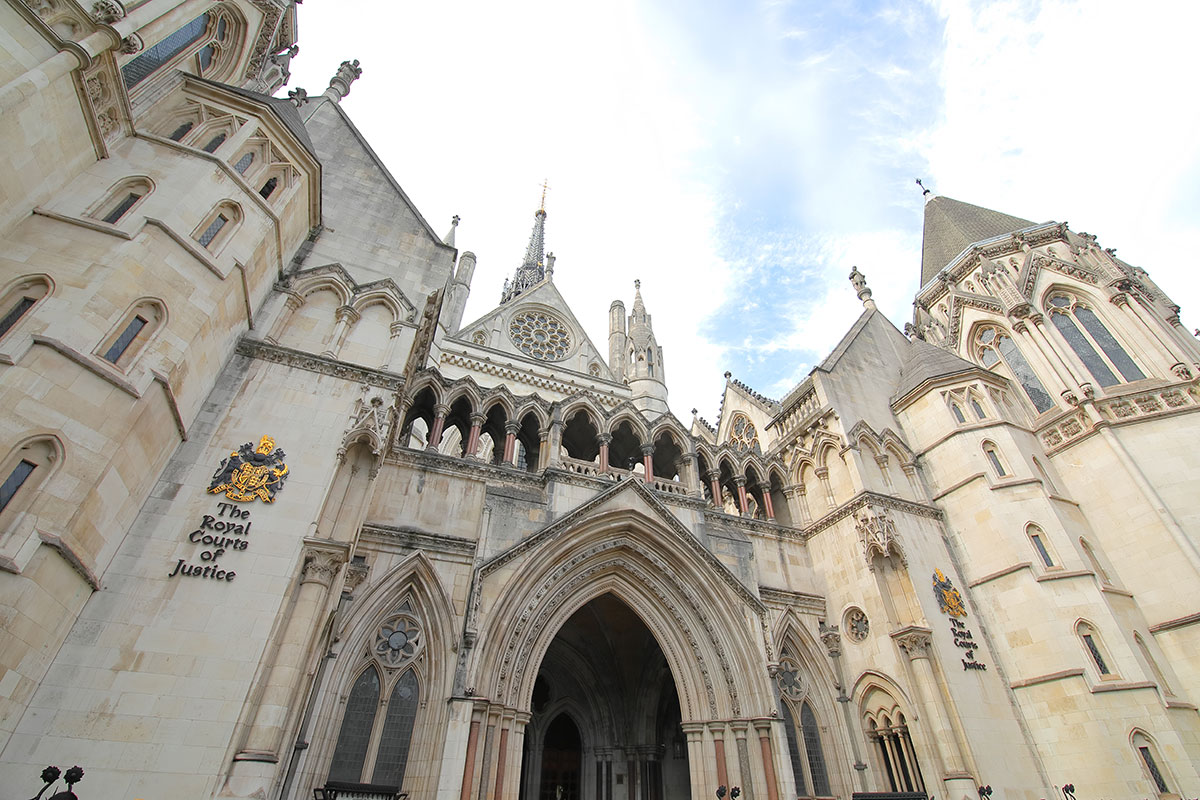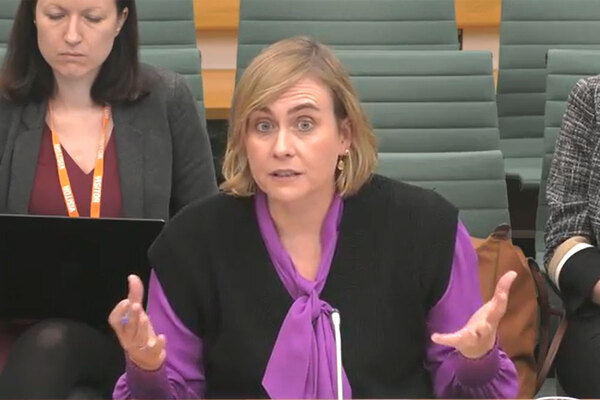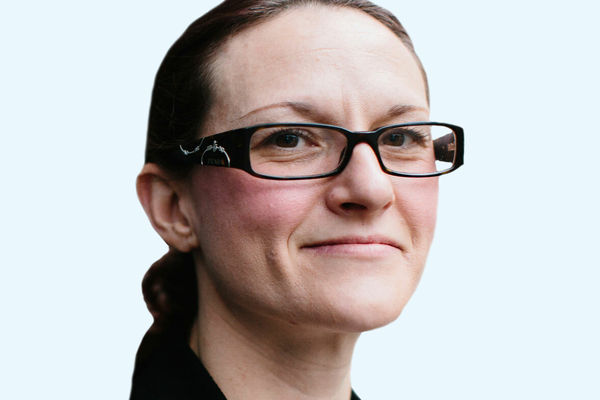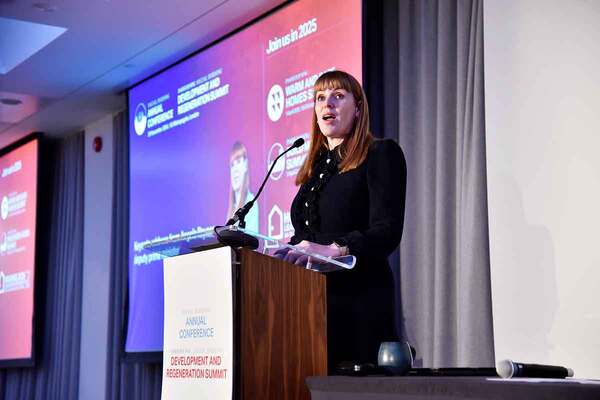You are viewing 1 of your 1 free articles
High Court rules decision to reject key Grenfell Inquiry recommendation was ‘political’ but ‘not unlawful’
A High Court judge has ruled that the rejection of personal evacuation plans for disabled people by the government was a “political decision” that was “not unlawful”.
The ruling was handed down by a High Court judge today after a case was brought by lawyers representing the Cladding Leaseholder Disability Action Group (Claddag) in December last year.
Judge Mary Stacey has dismissed the claim.
She said the decision to reject the implementation of personal emergency evacuation plans (PEEPs) for disabled people “must have been desperately disappointing for the claimants”, but it was “not in breach of the requirements of public law and procedural fairness”.
She added that it was “a political decision that the minister was entitled to make”.
One of the key recommendations from phase one of the Grenfell Tower Inquiry was to mandate PEEPs for people with mobility issues who live in high-rise buildings.
The government committed to implementing all of the recommendations in full in 2019.
However, it officially announced in a consultation document in May 2022 that it does not believe it is “proportionate” to implement the PEEPs recommendation and will continue to place its faith in ‘stay put’ advice in most buildings.
It concluded that the “evidence base for PEEPs is not sufficient to mandate their implementation in high-rise residential buildings at this stage”.
The Grenfell fire killed 72 people, 15 of whom were disabled, meaning it killed 41% of the disabled residents of the tower. None of those disabled people had been provided with PEEPs.
Instead of implementing the PEEPs recommendation, the government launched a new consultation on emergency evacuation information sharing, or EEIS, which looks at sharing the location of disabled residents with fire services.
But even this will only apply to buildings known to have serious fire safety issues, under the government’s proposals.
As a result of this announcement, Claddag applied for a judicial review and was granted one in September.
It was brought by two founding members of Claddag, Sarah Rennie and Georgie Hulme, and was granted on five grounds:
- Failure to have regard to mandatory material considerations
- Breach of legitimate expectation as a result of a failure to consult on departure from the PEEPs recommendation
- PEEPs consultation process so unfair as to be unlawful
- Breach of public sector equality duty in the Equality Act
- Breach of the European Convention on Human Rights
During the review in December 2022, the court heard how the government had already decided not to go through with mandating PEEPs for disabled people in high-rise buildings as early as September 2021, despite not having completed a consultation on the decision.
It emerged that by 22 September, an options paper to then-fire safety minister Lord Greenhalgh did “not even include delivering the PEEPs recommendations… in full as an option for consideration”.
This was confirmed by internal records on the decision-making process disclosed by the government to the court.
It also emerged that Lord Greenhalgh, an unelected peer appointed to the role by former prime minister Boris Johnson, asked that the decision not be communicated to the public in February.
Instead, he wanted to wait until the government could publish a new consultation “exploring alternative measures”.
During a second day in court in December, Alan Payne KC, on behalf of the Home Office, said that despite what the government said in May, “there has been no decision on PEEPs”.
In explaining her decision to dismiss the claim, Judge Stacey said: “The defendant was cognisant of the urgent public safety imperative of evacuation plans in every high-rise residential building as identified in the phase one report recommendations, but decided that it was outweighed by the practical considerations and would be disproportionate to introduce PEEPs. That was exactly the political decision that the minister was entitled to make.”
She said that the government’s reasoning that it would not be “proportionate” to follow the PEEPs recommendation “could have been fuller and engaged more closely with the detailed and thoughtful findings and conclusions in the phase one report”.
However, Judge Stacey pointed out that there had been a sufficient grappling with the chair’s rationale in all the circumstances sufficient to meet the legal threshold.
She added: “The evidence demonstrates that it was not ignorance of the underlying rationale for the PEEPs recommendations, nor the risk and extent of any adverse impact, but fear of political fall-out, that explains the way in which the reason was articulated. It was not unlawful.”
Judge Stacey did criticise the government for “not taking account of the relevant real-life experience of persons such as Ms Rennie being evacuated during a fire in her building”.
In a joint statement, Ms Rennie and Mr Hulme said: “The court’s judgment makes clearer than ever to us and our community that a political decision has been made by this government to leave disabled and older people living in high-rise buildings without means of escape.
“It is a decision taken without listening to the experts and persons with lived experience who hold the answers to perceived practical difficulties. It is a decision to prioritise money over disabled persons’ lives. And it is a decision not to learn the lessons of the disproportionate deaths of disabled persons in the Grenfell Tower fire as identified by the chair of the public inquiry.
“However, this case has sparked a national conversation. Our supporters within the housing sector and fire safety industry have noted a significant shift in thinking on this issue over the past 12 months and the inhumane ‘stay put’ mantra has, at long last, lost its dangerous grip.
“We thank our legal team for their unwavering dedication together with Law for Change and everyone who has supported us to pursue this judicial review. Our small part in the pursuit of justice will continue.”
The government has been asked to comment on the decision.
However, housing secretary Michael Gove had already told the House of Commons last week that he is working with the home secretary to deliver the PEEPs recommendation.
Sign up to the Regulation and Governance Conference
A brand new housing sector conference shining a light on changing regulation and best practice governance – from financial and ethical governance, to ensuring a fair and good service for tenants.
Bringing together 250 UK housing governance professionals in one setting for the first time, this event is an unmissable opportunity to kick-start critical discussions around regulatory policy, tenant satisfaction, accountability, transparency and financial risk management.
Sign up for our regulation and legal newsletter
Already have an account? Click here to manage your newsletters













